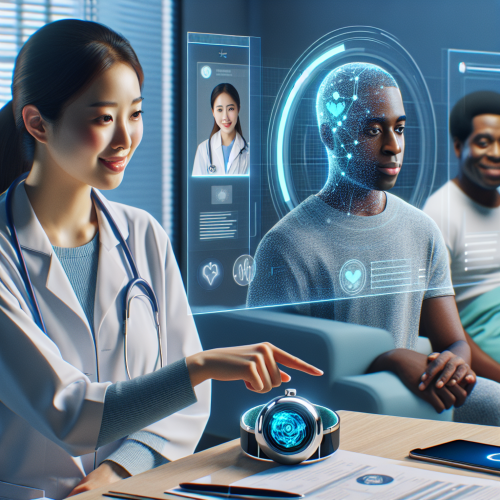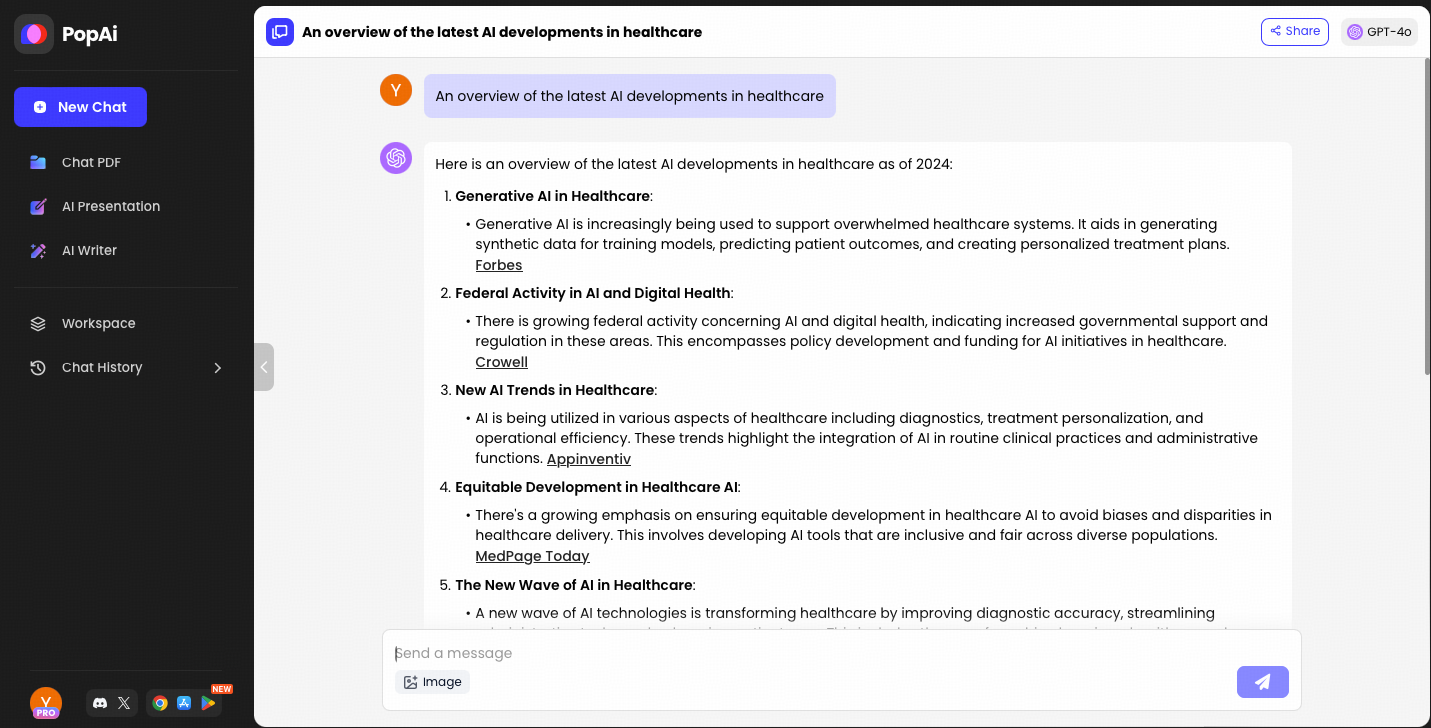How AI is Revolutionizing Patient Care in Healthcare

The healthcare industry is witnessing an unprecedented transformation driven by the integration of artificial intelligence (AI). Recent advancements in AI are not just theoretical but are significantly impacting patient care, diagnostics, treatment plans, and overall healthcare management. In this blog post, we will explore the latest research and developments in AI within the healthcare sector and discuss how these innovations are revolutionizing patient care.
Recent Advances in AI for Healthcare
1. Google's AI Ambitions in Healthcare
Google has been at the forefront of AI development, and its recent initiatives in healthcare highlight the company's commitment to enhancing patient care. Google's new model for personal health coaching leverages generative AI to assist clinicians and provide personalized health recommendations to patients. This model aims to bridge the gap between patients and healthcare providers by offering real-time health advice and monitoring (source).
2. Future Health Index 2024 Global Report
The Future Health Index 2024 global report by Philips reveals that healthcare leaders are increasingly turning to AI to address critical gaps in patient care. The report emphasizes that AI is essential for improving diagnostic accuracy, streamlining administrative processes, and enhancing patient outcomes. AI-driven tools are helping to predict disease outbreaks, manage chronic conditions, and personalize treatment plans (source).
3. Harvard Public Health Analysis
A comprehensive analysis by Harvard Public Health discusses both the potential benefits and risks of AI in healthcare. While AI can significantly improve patient care by providing accurate diagnostics and personalized treatments, there are concerns about data privacy, algorithmic bias, and the need for rigorous validation of AI tools. The analysis underscores the importance of developing ethical AI frameworks to ensure patient safety and trust (source).
4. AI and Medical Outcomes
Forbes recently explored how AI can revolutionize healthcare and medical outcomes. The article highlights various AI applications, including predictive analytics for disease prevention, AI-powered imaging for early diagnosis, and robotic surgery for precision treatment. AI's ability to analyze vast amounts of medical data quickly and accurately is transforming how healthcare providers diagnose and treat patients, leading to better outcomes and reduced costs (source).
5. Cleveland Clinic and IBM Collaboration
Cleveland Clinic, in collaboration with IBM and the Hartree Centre, is advancing healthcare through AI and quantum computing. This partnership aims to leverage AI to enhance clinical decision-making, optimize treatment protocols, and improve patient outcomes. The collaboration focuses on developing AI models that can predict patient responses to treatments and identify potential complications early, thereby improving the quality of care (source).

AI Chat Insights from PopAi
To gain further insights into the latest AI developments in healthcare, we turned to PopAi, an advanced AI platform powered by the cutting-edge Gpt-4o language model. This AI platform can provide you with everything you want to know.
Diagnostic Accuracy
AI algorithms are now capable of analyzing medical images with remarkable accuracy. Tools like deep learning and convolutional neural networks (CNNs) are used to detect abnormalities in X-rays, MRIs, and CT scans. This not only speeds up the diagnostic process but also reduces human error, leading to more accurate and timely diagnoses.
Personalized Treatment Plans
AI is playing a crucial role in developing personalized treatment plans. By analyzing a patient’s genetic information, medical history, and lifestyle factors, AI can recommend treatments that are tailored to individual needs. This approach is particularly beneficial in managing chronic diseases like diabetes and cancer, where personalized care can significantly improve patient outcomes.
Health Monitoring and Wearables
Wearable devices equipped with AI are becoming increasingly popular for continuous health monitoring. These devices can track vital signs, detect irregularities, and alert healthcare providers in real-time. AI algorithms analyze the data collected from wearables to provide actionable insights, helping in early detection and prevention of health issues.
Virtual Health Assistants
Virtual health assistants powered by AI are transforming patient engagement. These assistants can answer patient queries, provide medication reminders, and schedule appointments. By offering 24/7 support, virtual health assistants enhance patient satisfaction and reduce the burden on healthcare facilities.
Predictive Analytics
Predictive analytics is another area where AI is making a significant impact. By analyzing historical patient data, AI can predict disease outbreaks, identify high-risk patients, and suggest preventive measures. This proactive approach helps in reducing the incidence of diseases and managing healthcare resources more efficiently.
Ethical Considerations
While AI offers numerous benefits, it also raises ethical concerns. Ensuring data privacy, addressing algorithmic bias, and maintaining transparency in AI decision-making are critical issues that need to be addressed. Developing ethical guidelines and regulatory frameworks is essential to harness the full potential of AI in healthcare while safeguarding patient interests.

Conclusion
AI is undoubtedly revolutionizing patient care in healthcare. From enhancing diagnostic accuracy to personalizing treatment plans and improving health monitoring, AI is transforming every aspect of patient care. However, it is essential to address the ethical and regulatory challenges associated with AI to ensure its safe and effective implementation. As research and development in AI continue to advance, the future of healthcare looks promising, with AI playing a pivotal role in enhancing patient outcomes and overall healthcare delivery.
